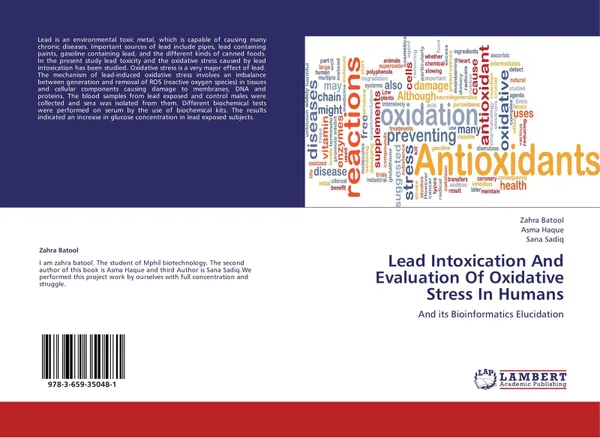Lead Intoxication And Evaluation Of Oxidative Stress In Humans
📙 Lead is an environmental toxic metal, which is capable of causing many chronic diseases. Important sources of lead include pipes, lead containing paints, gasoline containing lead, and the different kinds of canned foods. In the present study lead toxicity and the oxidative stress caused by lead intoxication has been studied. Oxidative stress is a very major effect of lead. The mechanism of lead-induced oxidative stress involves an imbalance between generation and removal of ROS (reactive oxygen species) in tissues and cellular components causing damage to membranes, DNA and proteins. The blood samples from lead exposed and control males were collected and sera was isolated from them. Different biochemical tests were performed on serum by the use of biochemical kits. The results indicated an increase in glucose concentration in lead exposed subjects.
Мнения
